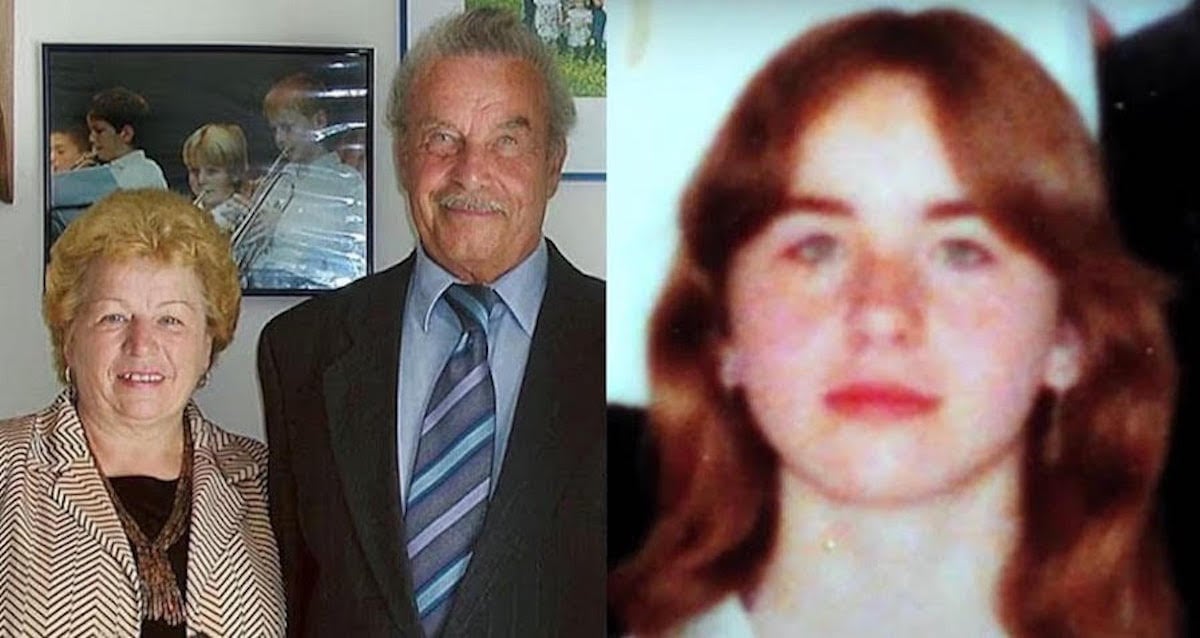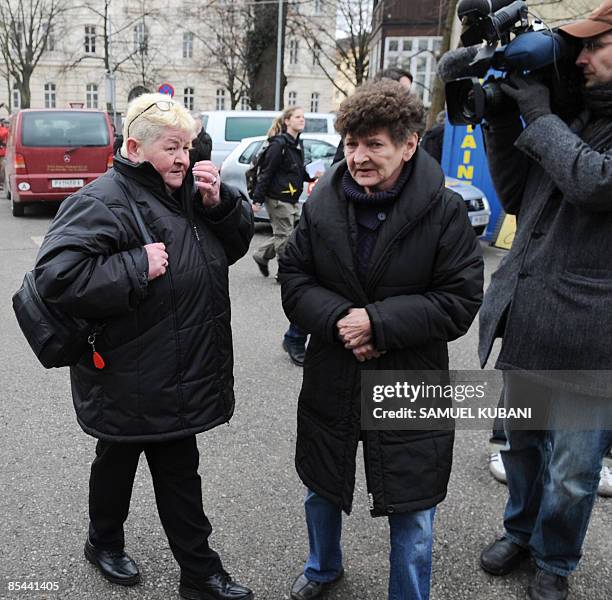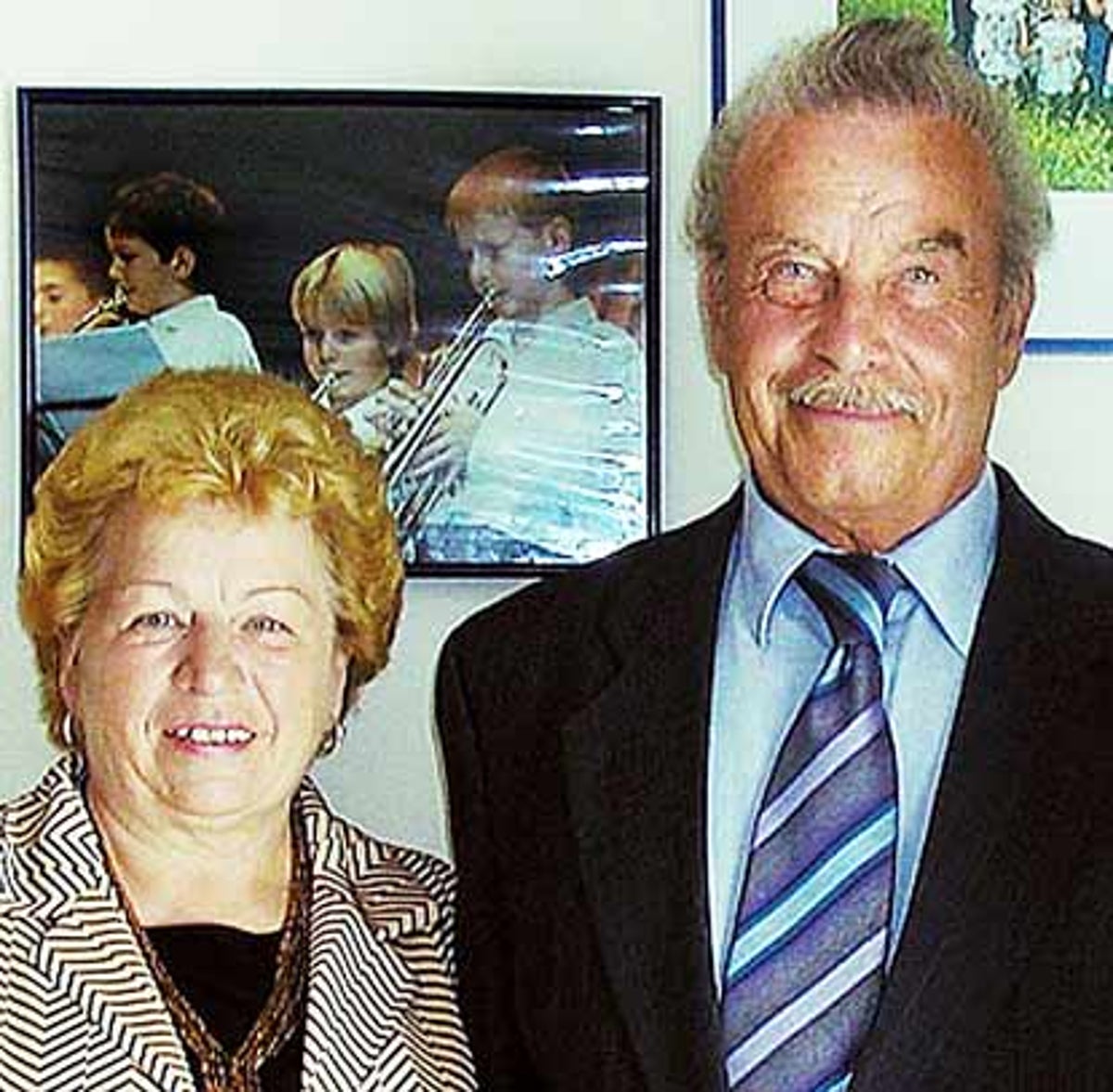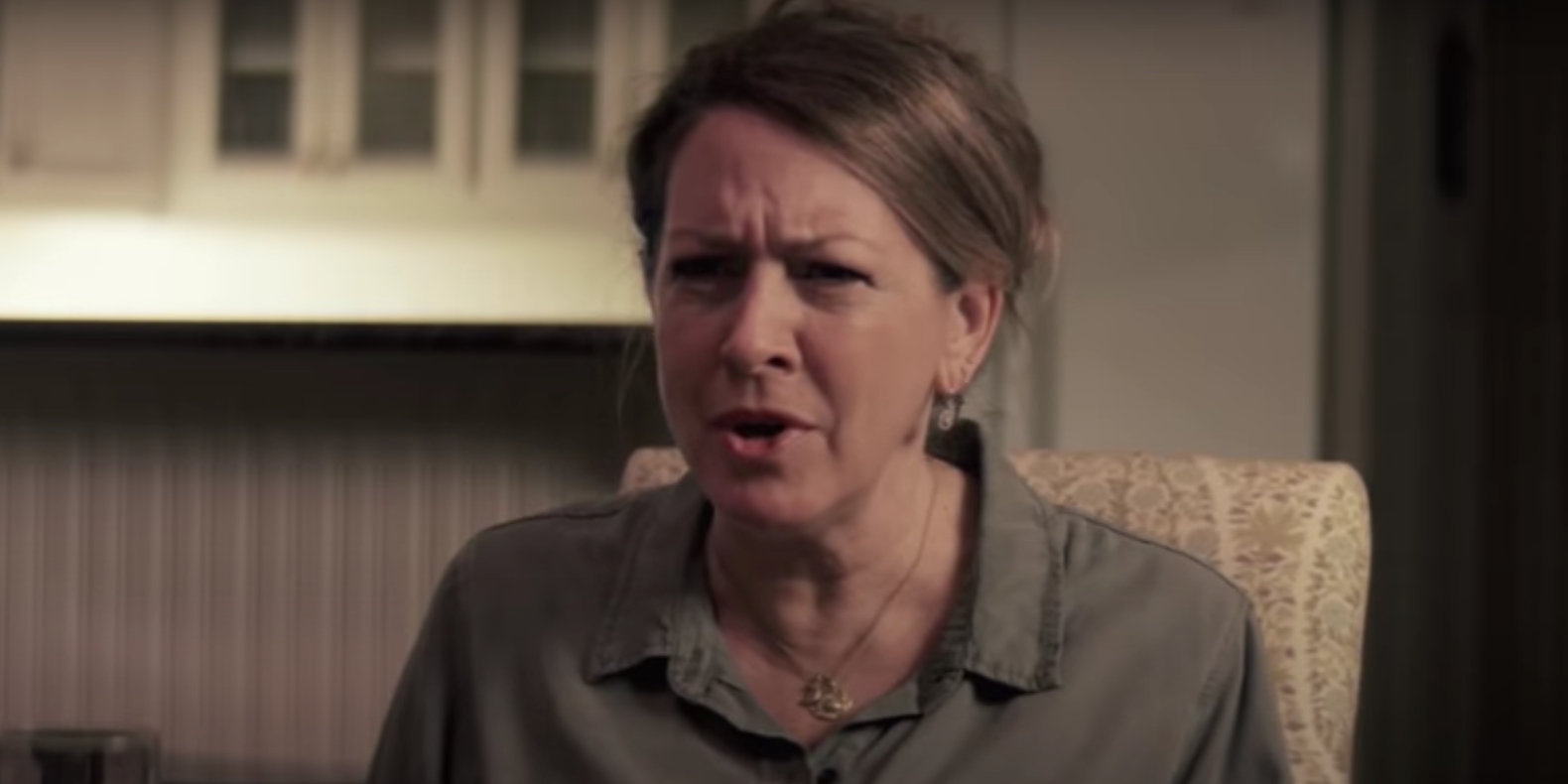Imagine living in a world where stories of horror and resilience collide. Rosemarie Fritzl is one such tale that shook the world to its core. It's a story that makes you question humanity, justice, and the strength of the human spirit. In this article, we dive deep into the chilling details of Rosemarie Fritzl's life, the harrowing experiences she endured, and the impact it had on global society. So, buckle up, because this isn't just a story—it's a reality that demands to be heard.
When you hear the name Rosemarie Fritzl, you might think it's just another headline from a crime thriller. But trust me, this is far from fiction. It's a real-life nightmare that unfolded in Austria, leaving the world in disbelief. This case isn't just about one person; it's about the systems that failed, the trauma inflicted, and the resilience that emerged from the ashes.
Before we dive into the nitty-gritty, let's set the stage. This isn't just another article about crime or injustice. It's a deep exploration of how one woman survived unimaginable horrors and how the world reacted to her story. It's a story that will leave you questioning the boundaries of human endurance and the importance of accountability.
Read also:Ava Max Partner The Untold Story Behind The Music Empire
Biography of Rosemarie Fritzl
Who is Rosemarie Fritzl?
Rosemarie Fritzl is a name that resonates with tragedy and strength. Born in Austria, her life took a dark turn when she became a victim of one of the most heinous crimes in modern history. Her story isn't just about her; it's about the systemic failures that allowed such atrocities to occur. Let's break it down and understand who Rosemarie Fritzl really is.
Here's a quick snapshot:
| Name | Rosemarie Fritzl |
|---|---|
| Date of Birth | February 21, 1960 |
| Place of Birth | Austria |
| Known For | Survivor of Josef Fritzl's basement imprisonment |
| Impact on Society | Global awareness of domestic abuse and human rights |
Rosemarie's life is a testament to the strength of the human spirit and the need for justice. Her story has inspired countless individuals to speak out against abuse and demand better systems for protection.
The Dark Reality: Josef Fritzl's Basement
Understanding the Horror
Let's talk about the elephant in the room: Josef Fritzl's basement. This wasn't just any basement; it was a prison where Rosemarie spent years in captivity. The details are chilling, but they're essential to understanding the magnitude of what she endured.
Here are some key points:
- Rosemarie was held captive by her father, Josef Fritzl, for over two decades.
- The basement was designed to isolate her completely from the outside world.
- She endured physical, emotional, and psychological abuse throughout her imprisonment.
This case wasn't just about one person—it was about a family dynamic gone horribly wrong. It exposed the dark underbelly of domestic abuse and the importance of speaking out.
Read also:Tony Hinchcliffe Siblings A Closer Look At The Family Behind The Iconic Career
Rosemarie Fritzl's Story: A Timeline
From Captivity to Freedom
Understanding Rosemarie's journey requires looking at the timeline of events. It's not just a story of captivity; it's a story of survival and eventual freedom. Let's break it down:
- 1984: Rosemarie is first imprisoned in the basement by her father.
- 2008: The case comes to light when Rosemarie seeks medical help for one of her children.
- 2009: Josef Fritzl is sentenced to life imprisonment for his crimes.
Each step in this timeline highlights the resilience of Rosemarie and the importance of accountability. Her story is a powerful reminder of the need for vigilance in our communities.
The Psychological Impact of Captivity
Understanding Trauma
Rosemarie Fritzl's experience has profound psychological implications. It's not just about the physical captivity; it's about the mental and emotional toll it takes. Let's explore this further:
- Victims of prolonged captivity often suffer from PTSD and other mental health issues.
- Rosemarie's case highlights the importance of mental health support for survivors.
- The stigma surrounding abuse and trauma often prevents victims from seeking help.
Her story has opened up conversations about mental health and the need for support systems that empower survivors.
Social Implications and Global Reactions
How the World Reacted
Rosemarie Fritzl's case didn't just shake Austria; it sent shockwaves around the globe. The world reacted with outrage and a demand for change. Here's how:
- Increased awareness about domestic abuse and human rights violations.
- Reforms in legal systems to better protect victims.
- Global campaigns to support survivors and prevent future cases.
The impact of her story extends beyond the individual; it's about creating a safer world for everyone.
Legal Proceedings and Justice
The Trial of Josef Fritzl
Josef Fritzl's trial was a landmark moment in legal history. It wasn't just about convicting one man; it was about setting a precedent for justice. Let's look at the key aspects:
- Josef Fritzl was sentenced to life imprisonment for his crimes.
- The trial highlighted the importance of evidence and testimony in securing justice.
- It brought attention to the need for stricter laws against domestic abuse.
The legal proceedings were a turning point in how society views and addresses such cases.
Rosemarie's Life After Captivity
A New Beginning
After years of captivity, Rosemarie Fritzl had to rebuild her life. It wasn't an easy journey, but it was one filled with hope and resilience. Here's a glimpse:
- Rosemarie has chosen to remain largely out of the public eye, focusing on her recovery.
- She has become a symbol of strength and resilience for survivors worldwide.
- Her story continues to inspire advocacy and support for victims of abuse.
Her journey is a powerful reminder that healing is possible, even after the darkest of experiences.
The Role of Media and Public Awareness
Spreading the Word
The media played a crucial role in bringing Rosemarie Fritzl's story to light. It wasn't just about reporting the facts; it was about raising awareness and demanding change. Here's how:
- Media coverage brought global attention to the case, sparking conversations about abuse.
- Documentaries and books have been produced to educate the public about the case.
- The story has inspired advocacy groups and support networks for survivors.
Rosemarie's case has become a catalyst for change, thanks in part to the media's role in spreading awareness.
Lessons Learned: What Can We Do?
Taking Action
Rosemarie Fritzl's story is a call to action for all of us. It's not just about sympathizing; it's about taking steps to prevent such cases in the future. Here's what we can do:
- Support organizations that work to prevent domestic abuse and support survivors.
- Advocate for stronger laws and better systems to protect victims.
- Speak out against abuse and create safe spaces for victims to seek help.
Her story reminds us that we all have a role to play in creating a safer world.
Conclusion: The Legacy of Rosemarie Fritzl
Rosemarie Fritzl's story is one that will be remembered for generations. It's a story of survival, resilience, and the fight for justice. Her experiences have taught us valuable lessons about the importance of accountability, support, and change.
As we reflect on her journey, let's take action. Share this article, support organizations working to end abuse, and be the voice for those who cannot speak for themselves. Together, we can create a world where stories like Rosemarie's become a thing of the past.
Remember, every voice matters. Let's make sure Rosemarie's story inspires change, not just shock.
Table of Contents
- Biography of Rosemarie Fritzl
- The Dark Reality: Josef Fritzl's Basement
- Rosemarie Fritzl's Story: A Timeline
- The Psychological Impact of Captivity
- Social Implications and Global Reactions
- Legal Proceedings and Justice
- Rosemarie's Life After Captivity
- The Role of Media and Public Awareness
- Lessons Learned: What Can We Do?
- Conclusion: The Legacy of Rosemarie Fritzl



